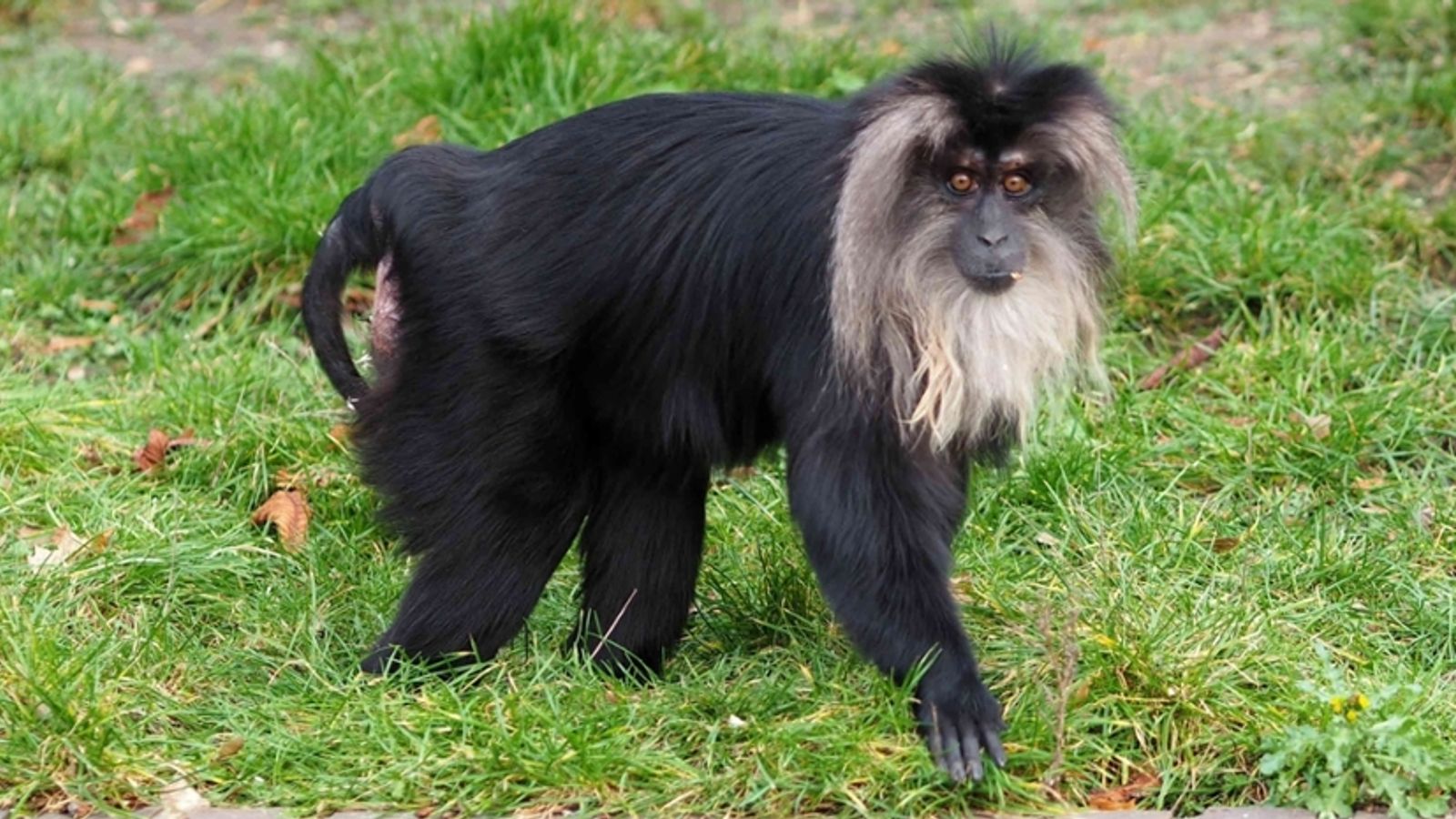A rare macaque has been stolen during a raid on a zoo in Germany.
Leipzig Zoo says the female lion-tailed macaque – named Ruma – was stolen from its cage during a “violent” overnight break-in.
Police in Germany have launched an investigation.
“We do not know what motive is behind the theft, but we are extremely concerned about the welfare of the animal, whose proper care requires expert knowledge,” the zoo said in a statement.
“We very much hope that the animal will be secured unharmed or returned.”
Police in the German state of Saxony, where Leipzig is located, said the burglary took place overnight on Saturday, 30 March.
“On the night from Saturday to Sunday, unknown persons entered the grounds of the Leipzig Zoo and then forcibly opened the monkey’s enclosure,” Polizei Sachsen said in a statement.
“They then stole a female monkey and fled the premises.
“Police have secured traces and put the monkey on a wanted list.”
Read more from Sky News:
Adidas to ‘block’ number 44 from Germany kits
Football fans warned about strength of German beer
Officers are appealing for witnesses or anyone with information to contact them.
Lion-tailed macaques are a species of Old World monkey, native to the forests of the Western Ghats mountain range in India.
Follow Sky News on WhatsApp
Keep up with all the latest news from the UK and around the world by following Sky News
Tap here
The primates are easily recognised by the striking grey or silver mane that surrounds their face and the lion-like, black tail tuft at the tip of their tail.
Only a few thousand lion-tailed macaques are thought to exist, and they are considered endangered by the International Union for Conservation of Nature (IUCN).












Post comments (0)